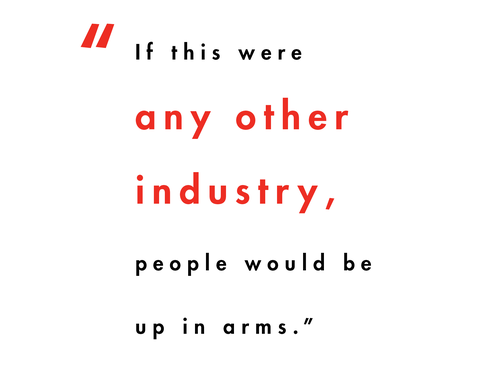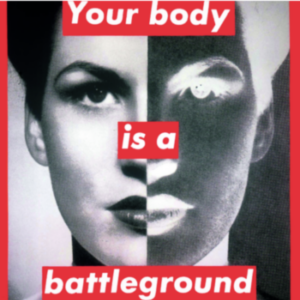The jezebel trope reminds me of the many objectifying ways that black women are represented in the mainstream media to this day, which has been addressed by many prominent scholars such as Roxanne Gay and Kimberly Crenshaw. However, something that doesn’t get discussed enough is how black women are portrayed in pornography and how it perpetuates their representation as sexually-deviant objects of male desire.
In the U.S., pornography is a huge industry. A scattered array of statistics shows how much the pornographic industry impacts our society:
-Just one (of hundreds of websites) reported 42 billion site visits in 2019.
-In 2006, pornography revenues exceeded 13 billion
-91% of men and 60% of women reported watching porn in 2018.
The first problem with portrayal of black women is that “black” is a niche porn category. There is no such category as “white women”. So, when dehumanizing labels of porn videos, such as “whore”, describe a video with a black actress, they are inextricably linked to her race, creating the illusion that she is a “whore” because she is black.
In addition, black women are often portrayed in ways that reaffirm stereotypes about their sexuality. For example, black porn actresses are more likely to be the target of aggression compared to white women. This again reaffirms the stereotype that black women have insatiable sexual appetites and that it is acceptable for men to violate them since it’s “what they want”. In addition, black actresses are less likely to be cast in “feminist” porn that focuses on female pleasure, which gives off the image that they are unworthy of intimacy and respect.
It’s hard to imagine that with the high rates of porn consumption, these images don’t get internalized by the men and women who see them and then manifested in the treatment of black women.





Porn loves a stereotype. It is a medium which often objectifies women, offering them up as not quite human vessels, perfect projections of male desire. If the female subject is a Black woman, then naturally the stereotypes that attend sexualized Black women haunt Black women porn actors. They are often asked to act out the “hood rat” and “gold-digger” troupes, performing that in that niche to satisfy the gaze of the porn consumer.
Raya, thank you for bringing this conversation to our virtual table. Porn is definitely not discussed enough, but its consequences can be damaging in creating negative stereotypes. And it is not only porn but the whole sex industry. I remember reading a paper for a class about sex workers and racial stereotypes in the industry. Black and Latinas sexual workers, particularly Black women, were not received in many “elite” clubs, with mostly White costumers, therefore they would have to work in clubs in areas where they faced more danger and were treated poorly. If I find it, I will share it with you!
That’s very interesting. I definitely agree that strip clubs that mainly serve to rich white guys prefer a certain appearance for their dancers. If you find the article you mentioned, please share it – I would definitely love to read it!
I’m not terribly surprised by your findings, Raya, as I wouldn’t expect the porn industry to strive for equity we already have to fight for in more public industries. In fact, I think porn is really built to explore what can’t be explored in more legitimate, public ways, so I think I’d expect the worst of gender, race, and class stereotypes to be present in porn.
What I think is really provocative about your post is the quote, because, contrary to what it says, we do find this kind of gender and racial inequity in “other industry.” In fact, we find it in a lot of industries. Government. High levels of school administration (at least in my 26 years of experience). Aviation. Space exploration. Orchestral leadership. All of these areas seem still seem off-limits to women of color (and, in some cases, women in general).
This racist belief started in Europe when they went into Africa and saw women there had large labia and but cheeks. They then kidnapped Saarjie Baartan from African and put her on display throughout Europe. This claims Black women as being overly sexual and causing people around them to “unable to help themselves” but to pleasure themselves from these women, basically raping them. This issue continued throughout slavery, an excuse for slave owners to rape their slaves. After slavery ended, this idea continued in the cartoons how African-American girls and women were only sexual animals and nothing more. Even on present-day TV, these ideas are still be enacted.
Your finding that Black women are less likely to be cast in roles showcasing female pleasure is particularly heartbreaking. Because they’re cast in dehumanizing roles as the “whore” who deserves violent sexual treatment draws parallels to slavery. I agree with Ryan’s point above that in this way, present-day media adds fuel to the fire. One connection I make is to the Netflix show “GLOW” (Gorgeous Ladies of Wrestling). It’s set in the 1980s within the women’s professional wrestling circuit. One Black woman is cast in the role of “the Welfare Queen” and performs the angry Black woman stereotype. Her character speaks out and questions whether this is the best narrative, but ultimately the white male director convinces her it’s an essential part to the story for the audience and is actually risky. She’s considered brave for playing the part.
Porn is so incredibly harmful to our society in many ways. One of the things that concerns me the most is the interplay between pornography and the (lack of) sexual education being dispensed to adolescents. Far too many young people learn about sex and sexuality via the internet and porn, thus absorbing the immensely harmful stereotypes that are upheld by pornography (including terrible racialized representations as invoked in Rayas post). So many areas of society participate in upholding and reproducing racist thinking and socialization.
I wonder how we’ll regard these artifacts of our obsessions in a hundred year’s time.
This is such an interesting topic, and as others have said, one that isn’t really discussed enough (in general, not just the racialized elements you raised). Most of the points I wanted to make have already been made, so just to piggyback on previous comments:
– I completely agree with Kelly that, contrary to what the quote says, these types of racial stereotypes about black women both exist and are tolerated in other industries. The difference I see, though, is there are at least quite public and high-profile attempts to change that in other sectors. For example, I work in tech, and as part of my company’s mandatory unconscious bias training, I’ve learned about the literature around these stereotypes in the workplace. I think because of the nature of the porn industry, most people wouldn’t even be aware of the issues you’ve raised.
– Like Amanda, I found the point about female pleasure to be the most disappointing. It feels like such a huge gap in the market, I’m so surprised that in a profit-driven industry like adult entertainment, nobody has tried to cater to it.
The quote, “If this were any other industry, people would be up in arms”, coupled with analysis of your portrayal of Black women in the pornography industry, bring to mind arguments for decriminalizing the sex work industry. The idea that if you decriminalize the workers (and legalize the industry), you can then extend then protections to the workers, beginning conversations that center the workers and the industry without the chastisement. The pornography industry is a legal, very lucrative industry, but despite your figures that the majority of men and women watch porn, pornography has been relegated to the lower echelons of societal conversations. What happens in pornography, the actors and actresses, and the images portrayed are all over-looked. Unless we start talking about pornography in common conversations, in the media, and in academia it will continue to be a place where people are objectified and portrayed in ways that are both demeaning and damaging.